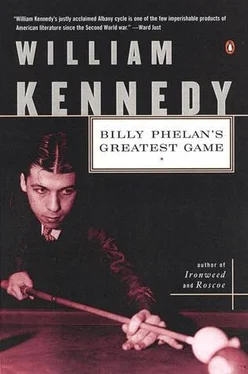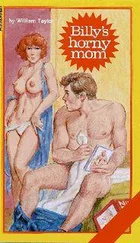In 1921, when Martin walked through the park with his father, they talked of Martin’s novel in progress. Martin had just returned from Europe, where he had written about the war. His articles had been published chiefly in the Albany press by Martin H. Glynn, and several of his longer pieces were printed in The Atlantic and Scribner’s and the North American Review , which had once printed the writing of his father. Certain editors regarded Martin as a writer of notable talent and encouraged him to challenge it. Accordingly, he wrote two-thirds of a novel about reincarnation.
He traced the story of the soul of the Roman soldier who diced for Christ’s cloak, and who was subsequently to live as an Alexandrian fishwife, a cooper in Constantinople, a roving gypsy queen, a French dentist, the inventor of a spring popularized by Swiss watchmakers in the late seventeenth century, a disgraced monk in Brittany, a bailiff in Chiswick, an Irish sailor in the American Fenian movement, and finally a twentieth-century Mexican trollop who marries into the high society of Watervliet.
“You have excellent language at your disposal, and a talent for the bizarre,” said the elder Daugherty, “but the book is foolish and will be judged the work of a silly dilettante. My advice is to throw it away and refrain from writing until you have something to say. A novel, Martin, is not a book of jokes.”
As a retort, Martin told his father of a former schoolmate, Howie McMahon, who was obsessed with the fate of the oiler in Crane’s open boat. Howie taught it to his students at Albany State Teachers College, wrote of it, spoke frequently of it to Martin. My struggle, Howie said, has no more meaning than the life of the oiler with his lifeless head bobbing in the surf after such a monumental struggle to survive. The oiler lived and died to reveal to me the meaning of his life: that life has no meaning. And Howie McMahon, Martin told his father, on a Sunday morning while the family was at high mass, hanged himself from a ceiling hook in the coal bin of his cellar.
“My response to the ravings of a lunatic like your friend,” said Edward Daugherty, “is that whether he knows it or not, his life has a meaning that is instructive, if only to illuminate the impenetrability of God’s will. Nothing is without purpose in this world.”
Martin plucked a crimson leaf from a maple tree and tore it into small pieces.
“That leaf,” said the elder writer, “was created to make my point.”
By late afternoon on Saturday, the Albany newspaper and wire service editors decided they could no longer withhold news of the kidnapping from the world, and they told this to Patsy McCall. He said he understood but had no further comment. At seven o’clock Saturday night, sixty-three hours after Charlie had been taken, his story was told in print for the first time. Headlines seemed not to have been so fat and febrile since the Roosevelt landslide.
The nation’s press sent its luminaries of the word to Albany to pursue the story: Jack Lait, Meyer Berger, James Kilgallen, and Damon Runyon among many, forcing comparisons with the 1931 killing of Legs Diamond in an Albany rooming house, the last time America had cast such a fascinated eye on the underside of Albany life.
Shortly after nine-thirty Saturday night, Billy bought one of the last of the Times-Union extras, an early edition of the Sunday paper, at the Union Station newsstand. The story of the kidnapping carried Martin’s byline. Billy read his own name in the story. No mention was made of any intermediary having been chosen, and no member of the McCall family would speak for publication.
The confirming source for all information was the district attorney, Dick Maloney, who complained that neither he nor the police could convince the McCalls to cooperate with their investigation. Governor Herbert Lehman suggested a reward for the capture of the kidnappers but Patsy told the governor, no, this is between us and them.
Billy folded the newspaper, shoved it into his coat pocket and crossed Broadway to Becker’s. The bar was busy, but he found a spot and caught Red Tom’s eye. Red Tom nodded but made no move to come near him. “A beer, Tom,” Billy finally said, and Red Tom nodded again, drew a beer, and placed it in front of Billy.
“Only one, Billy.”
“What do you mean, only one?”
Red Tom put up his hands, palms out, and said nothing. A stranger at the bar looked Billy over, and Red Tom walked away. Billy sipped his beer and waited for enlightenment. When the stranger left the bar, Red Tom came down to Billy and whispered: “Gus don’t want your business.”
“Why not?”
“I don’t know. What’d you do to him?”
“Nothing. I haven’t saw Gus in weeks to talk to. And I don’t owe him a nickel.”
“Tell Billy Phelan we don’t want his business is his exact words,” said Red Tom. “Why not? I says to him. Because he’s no good, he says. Wait a minute, I says to him, Billy is all right, he’s a good friend of mine. Okay, you open up your own place and serve him. Here he don’t get served, do you get my meaning? I get his meaning. I can’t serve you, Billy, and I don’t know why. Do you know?”
“Maybe I know,” Billy said.
“We’re friends, Billy, but I got to work.”
“I know that. I don’t blame you for anything.”
“If I did own the joint, nobody’d keep you out.”
Billy managed a small smile and finished his beer. “Have you seen Martin tonight?”
“Not yet. He must be on the story.”
“I’ll catch you later, Tommy.”
And Billy went out of Becker’s, feeling a door close on his life when the outside door clicked behind him. He stood looking around Broadway, which was at its Saturday night brightest, bustling with the traffic of cars and people, the usual bunch thickened by the showgoers and nightclubbers.
Not wanted in Becker’s? That’s like a ball game with no home plate.
Billy walked down Broadway and up the stairs into the Monte Carlo. The horse room was dark but the bird cage, the crap table, and two roulette wheels were all busy, and in the back Billy saw lights on in the card room. He stepped to the crap table, where Marty Mitchell was on the stick and Bill Shea, who ran the Monte Carlo for Bindy, was watching the play. Billy didn’t know the shooter, who was trying to make a six. He made it, and then threw an eleven. He doubled his bet to forty dollars and threw a seven. “That’s five passes,” somebody whispered, and Billy pulled out the exchequer, sixty-two dollars, and put twenty on the come line.
“That twenty is dead,” Bill Shea said, and the game stopped.
“What’s the problem?” Billy said as the stickman nudged the twenty off the line and back toward Billy.
“No problem,” Shea said. “Your money’s no good here, Phelan.”
“Since when?”
“Since now. And you’re not wanted on the premises.”
“Is this Bindy’s orders?”
“I wouldn’t know that. Now, be a good fellow and take your money and get out.”
Billy put the twenty around the rest of his cash and backed away from the table under the silent eyes of the players. As he went out the door, the game resumed and the stickman called: “Seven again.” Billy walked slowly down to the street.
He found the same response in three more Broadway bars, in Louie’s pool room and at Nick Levine’s card game. Nick, like Red Tom, apologized. No one gave Billy a reason for turning him away. In Martha’s, he sat at the bar and she poured him a double scotch and then told him he’d been marked lousy.
“It was Bindy, I know that much,” Billy said. “When did you hear about it?”
“This afternoon,” Martha said.
Читать дальше












